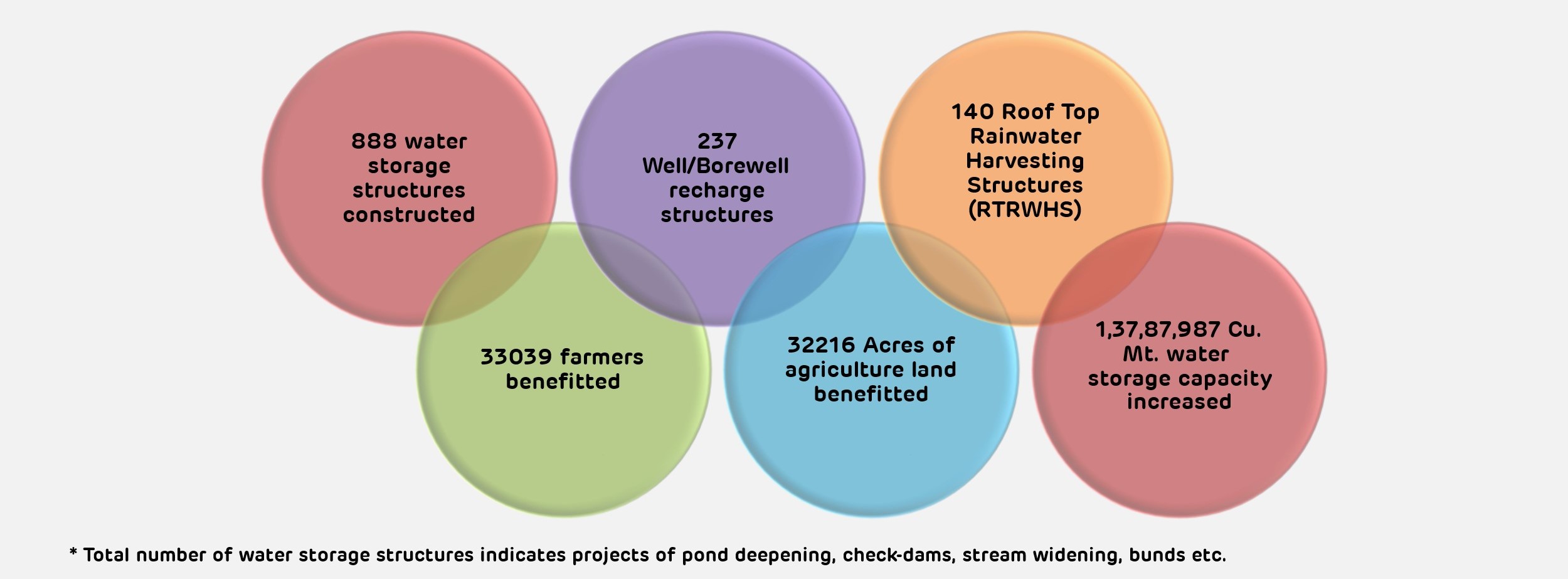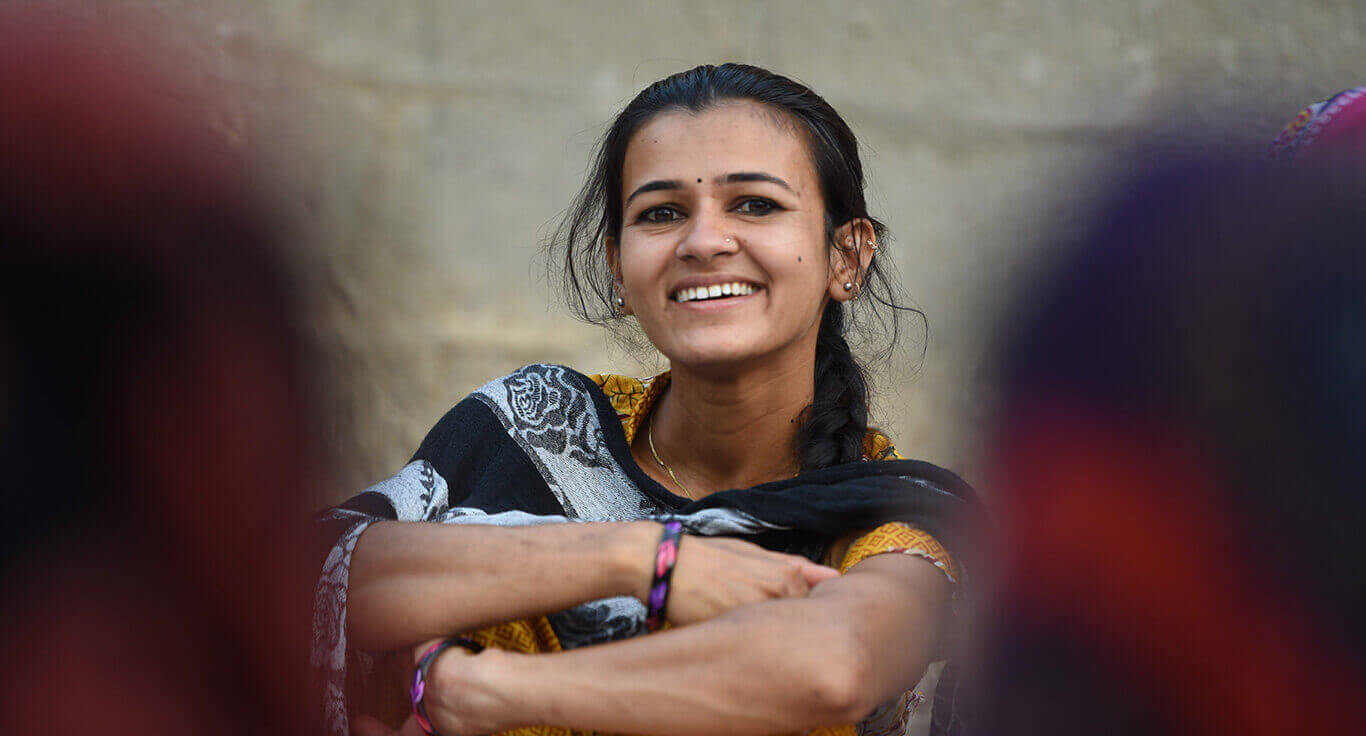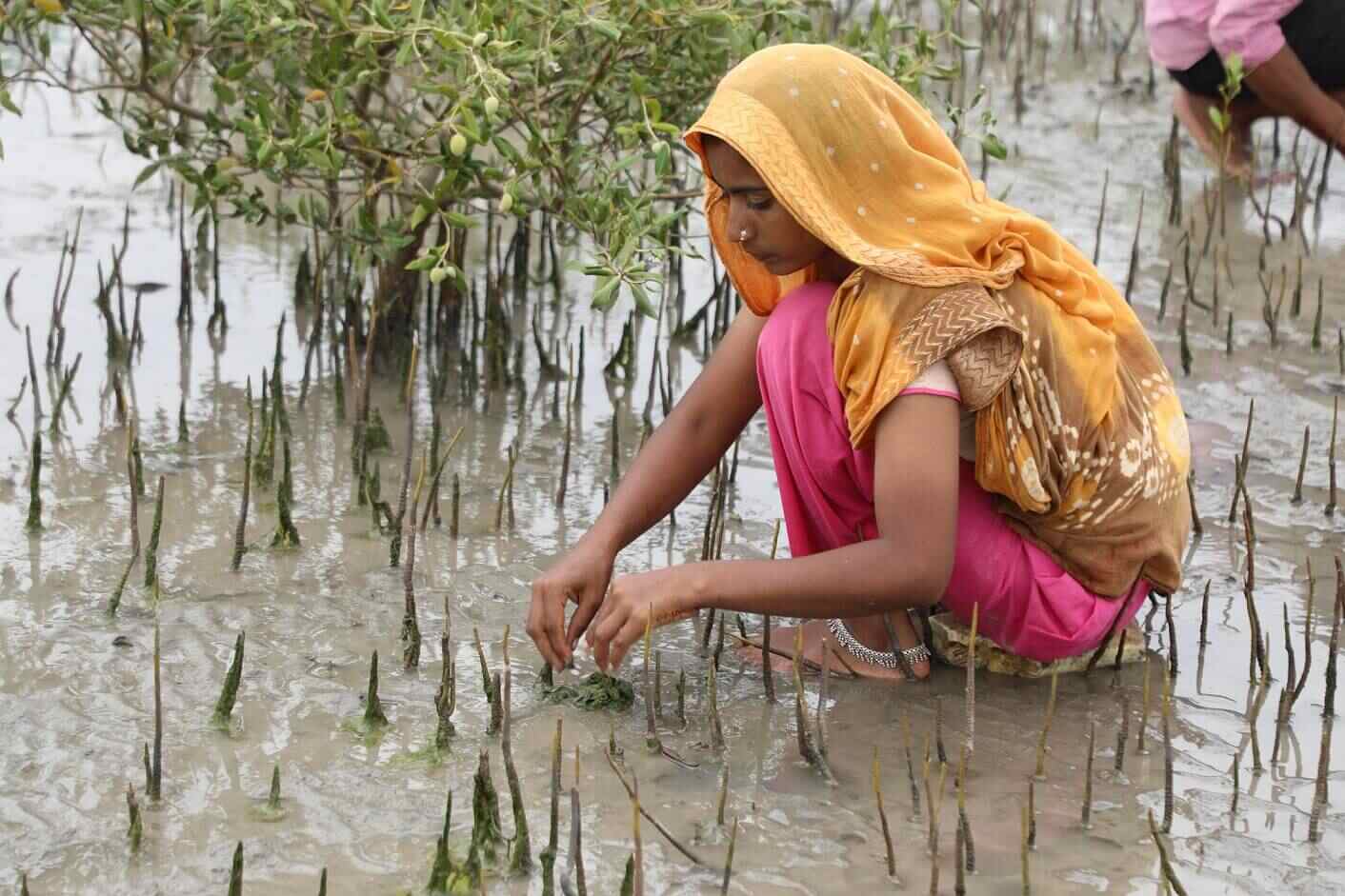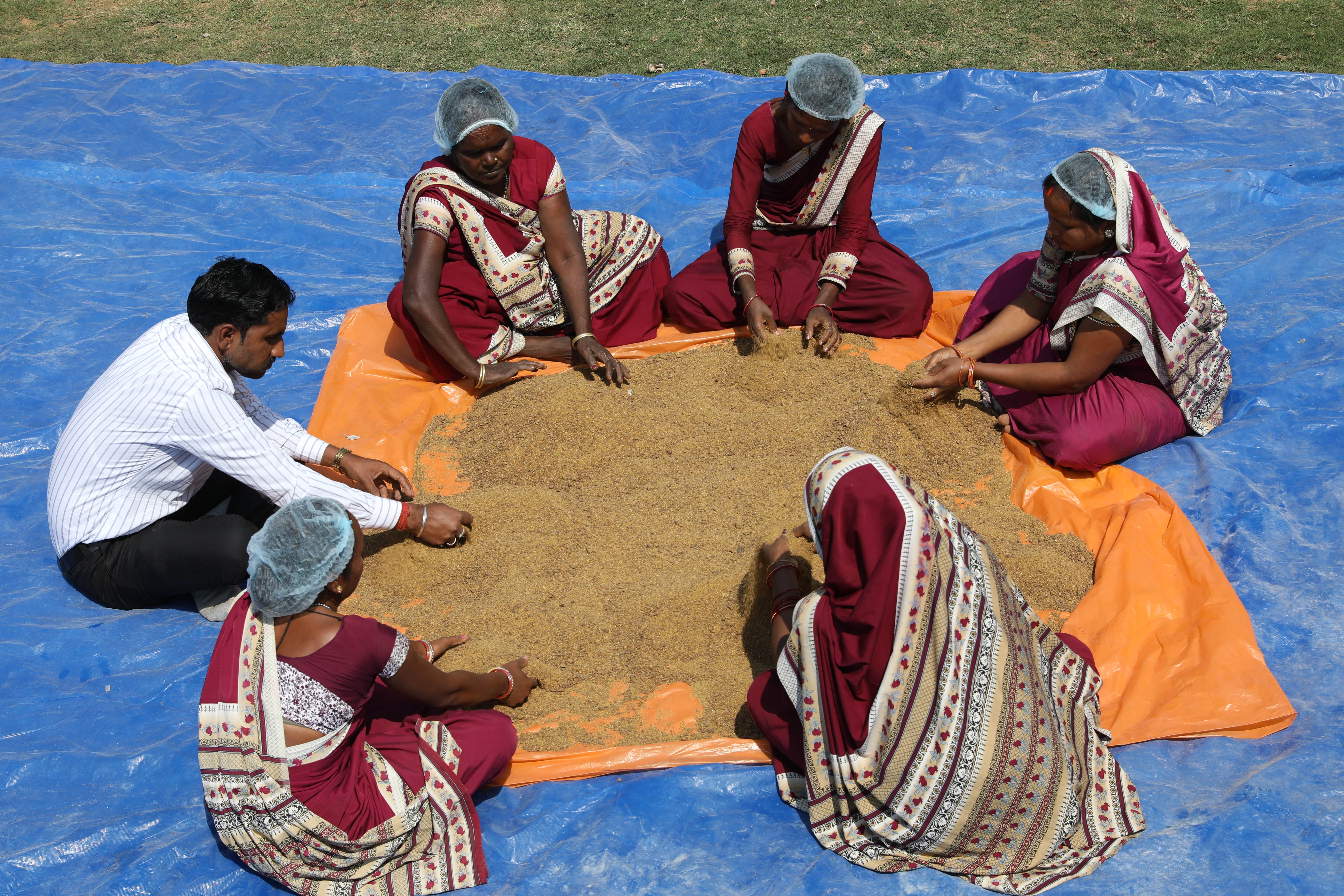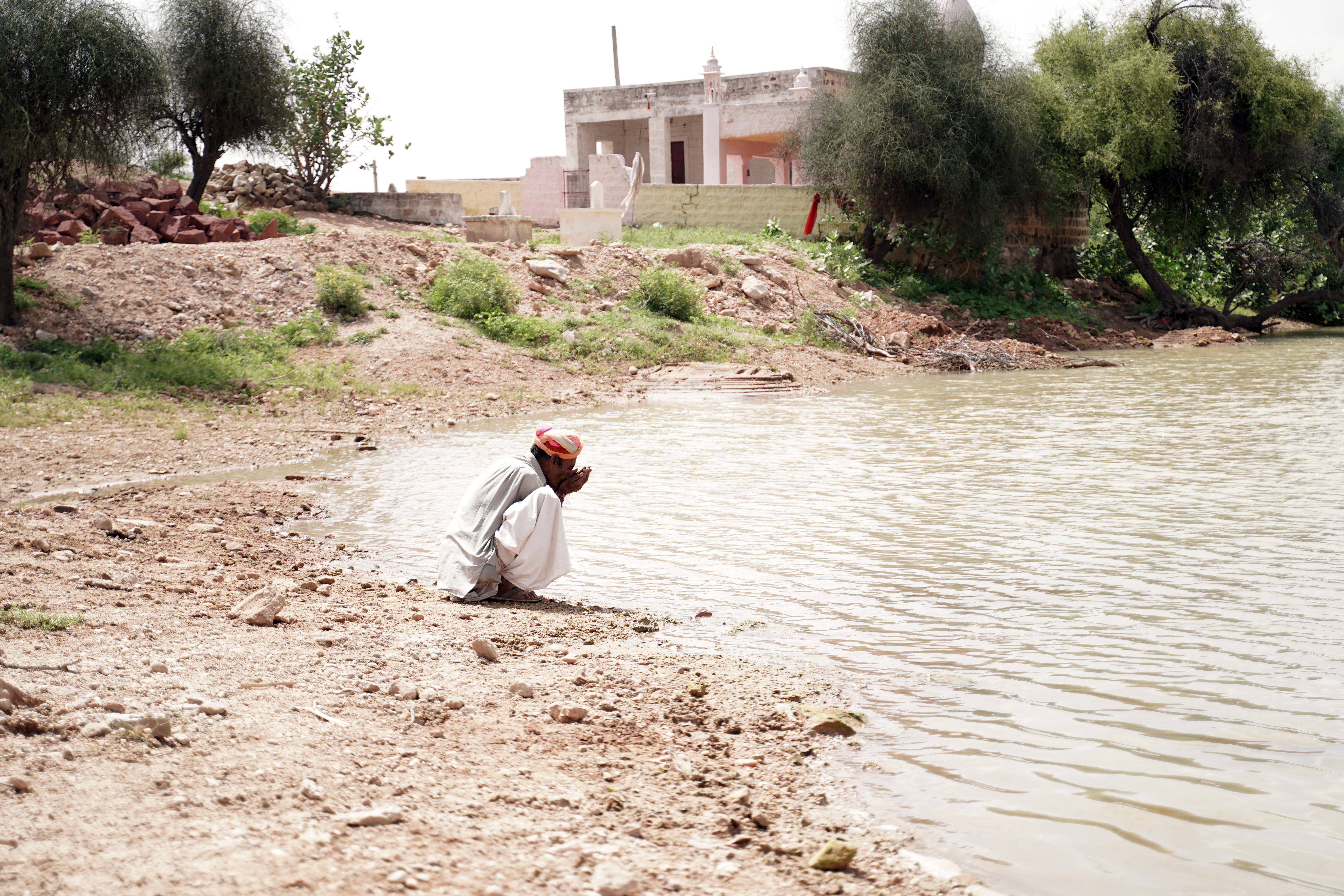
Water, our life source, is precious to sustain all living beings on Earth. It covers approximately 71% of our planet's surface. However, only 2.5% of this water is fresh and suitable for drinking, agriculture, and most industrial uses. With the increasing global population and the impact of climate change, the need to conserve water has become more alarming than ever. The United Nations’ theme for World Water Day this year is ‘Water for Peace’, which highlights the crucial role water plays for the sustainability and stability of all life.
In the arid landscapes of India, where the sun flames fiercely, water scarcity is a major challenge. The people, however, have learned to flourish. Drawing from the people’s traditional wisdom, the Adani Foundation is committed to efficiently conserve and manage the elixir of life. With a community-based approach, the Foundation teams in various parts of India is converging state action at community level to augment groundwater availability for drinking as well as irrigation purposes.
Take for instance the Thar desert of Rajasthan, where generations of people have relied on a traditional and wise practice – the construction of village ponds. These ponds were and are their lifelines. The ponds not just provide drinking water for people but also support their animals including cattle, sheep, goats and camels. Despite the modern facilities and popularity of tubewells and access to canal water, the elders of the villages still recognize the ponds as their innate identity. In other words, ponds are deeply ingrained in the culture of the people.
Understanding the critical need for water conservation in these dry landscapes, the Adani Foundation aimed to revive the ponds and preserve the lifeline of the villages. In the mission, communities and local leaders became architects for deciding on the excavation area (aagar), pond depth, catchment area (aagor), bund (paar) enhancements etc. The decisions of the community didn’t solely revolve around accumulating water. Their concerns included child safety, welfare of cattle and wildlife, and protection of green cover around the pond.
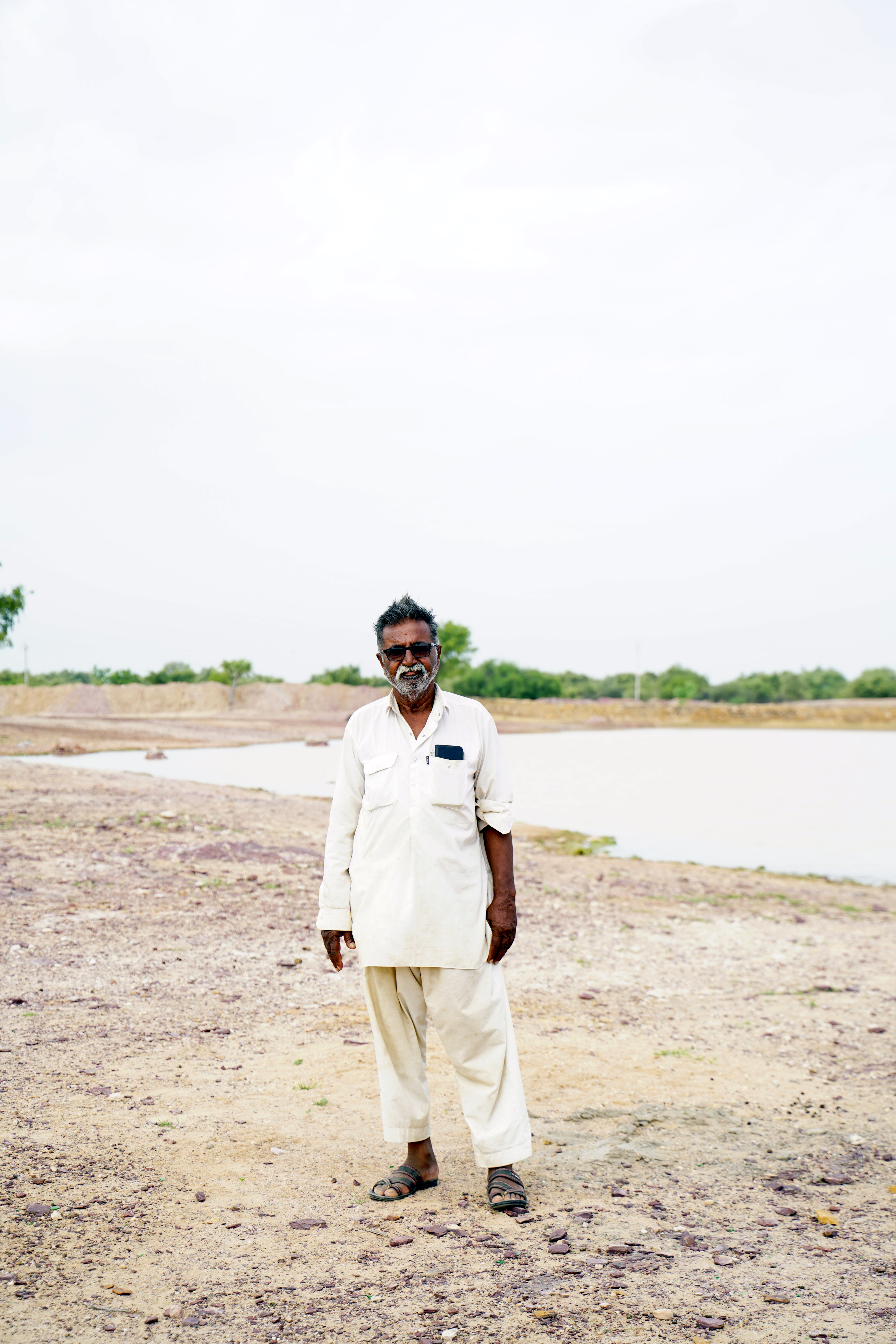 Inder Singh, Dawara village
Inder Singh, Dawara village
Since FY 2022-23, the Adani Foundation has done water conservation works in which a total of 29 ponds of the villages of Jaisalmer and Barmer district are deepened. It has resulted in increased water storage capacity by more than 2 lakh cubic meters. These water conservation initiatives will recharge the ground water of the region. And more importantly, it will ensure a sustainable surface water source for the longer period during the year. Inder Singh, an elderly resident from Dawara village, appreciated the rejuvenation efforts highlighting the critical role of ponds. He said, “Chataliya pond used to be the primary water source. In past the pond was regularly taken care of by the people and the panchayat. The initiative of Adani Foundation for rejuvenating this pond is a noble cause that will benefit to our people, livestock, and wildlife.”
Let’s illustrate this approach further with an instance from Kutch – a water-scarce region that faces steady depletion of ground water, high levels of Total Dissolved Solids (TDS) and frequent drought-like conditions. Kamshri Galsava and her family live in Zarpara – a village nestled between hills and the banks of the river, about two kilometers from the nearest town. Due to insufficient rainfall and increased water consumption in this region, the water in river that was once fresh, has turned salty. The borewell water, once fit for consumption, slowly became undrinkable. It has also become impractical for agriculture. As a result, the once fertile land is turning barren, forcing farmers to shift towards rain-fed agriculture. Many farmers in this region prefer living in the valley where their fields are. This way, they can stay close to their families and livestock. While water for farming is sourced from borewells, the consumption of brackish water has led to health issues such as stomach problems, dental issues, skin conditions, and various other health concerns. Medical expenses shot up.
As a result, the Adani Foundation constructed rooftop rainwater harvesting system to store rainwater for the purpose of drinking. This initiative aimed to save the community from spending Rs. 40/- for water and Rs. 10 to 15 for petrol every day, along with the inconvenience of spending an hour every day fetching water. Through our intervention, the daily expense for drinking water dropped from Rs. 50-60 to just Rs. 15 -20, with a monthly saving of Rs. 1500. There was finally a sense of satisfaction behind the expenditure on drinking water. The community also contributed monetarily towards building these tanks to store rainwater, ensuring ownership.
Through various water management and conservation works, the Adani Foundation has increased water storage capacity to 13.78 million cubic meters. This is equal to the yearly drinking water requirement of 75.5 lakh people! Water literacy bolstered by sound practices in communities has cultivated good health, good crop as well as immense value, translating well into economic prosperity. Cumulative Water Conservation work done till date, across India:
